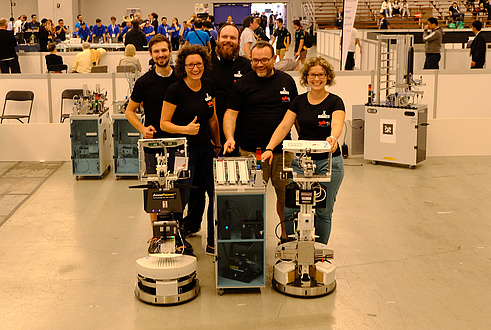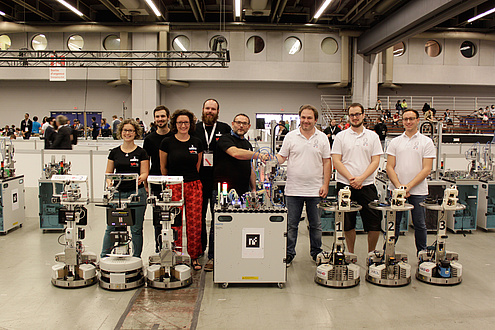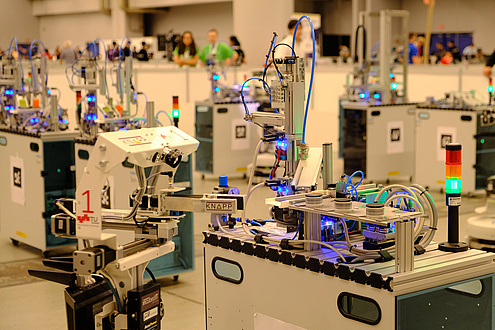Gerald Steinbauer explains the secret of the success: "This year we have again dramatically increased the skills of our robots: by means of computer vision we have increased the precision in gripping products and improved our AI planning software. This gave us the certainty that we could manufacture even more complex products in the competition, which was ultimately the decisive factor for our victory.” On their way to the podium, the GRIPS team defeated the reigning world champion, the team of RWTH Aachen University. In 2017 Team GRIPS already won the runner-up title in Japan and as "Rookie of the Year" became third in 2016 in the Leipzig championships.
The robots of the Logistics League
“Industry 4.0″ - this is the title of the task teams in the RoboCup Logistics League are asked to address. The idea behind all of this is to create an intelligent network of processing machines to boost the efficiency of production processes and bring in successful individualisation for all the potential products. The robots plan, implement and optimise the material flow, supplying products to meet the needs of dynamic orders in the modern production environment. Neither the available production facilities nor the product nor lead times are known in advance, and production must be planned on-line by robots. The Logistics League is a sub-discipline of the RoboCup Industrial League, which serves as a joint framework for the industry-oriented application leagues of the RoboCup. The members of the GRIPS team benefit from the TU Graz' research focus on smart production with a focus on agile production, the individualization of products and the production of category 1 batch sizes. The aim of the international RoboCup Community is to promote the development of intelligent robots through competitions, providing scientists and students from around the world with a highly attractive test field for demonstrating their robots. There are five leagues, namely RoboCup Soccer, RoboCupRescue, RoboCup@Home, RoboCup Industrial and RoboCupJunior.Robotics is anchored in the field of expertise "Information, Communication and Computing", one of five strategic focus areas of TU Graz.
![[Translate to Englisch:] © TU Graz Three men and two women in black TU Graz T-shirts pose together with two robots in a production hall](https://www.tugraz.at/fileadmin/_processed_/6/b/csm_RoboCup_GRIPS_Weltmeister1_banner_by_tugraz_43beb13a36.jpg)



